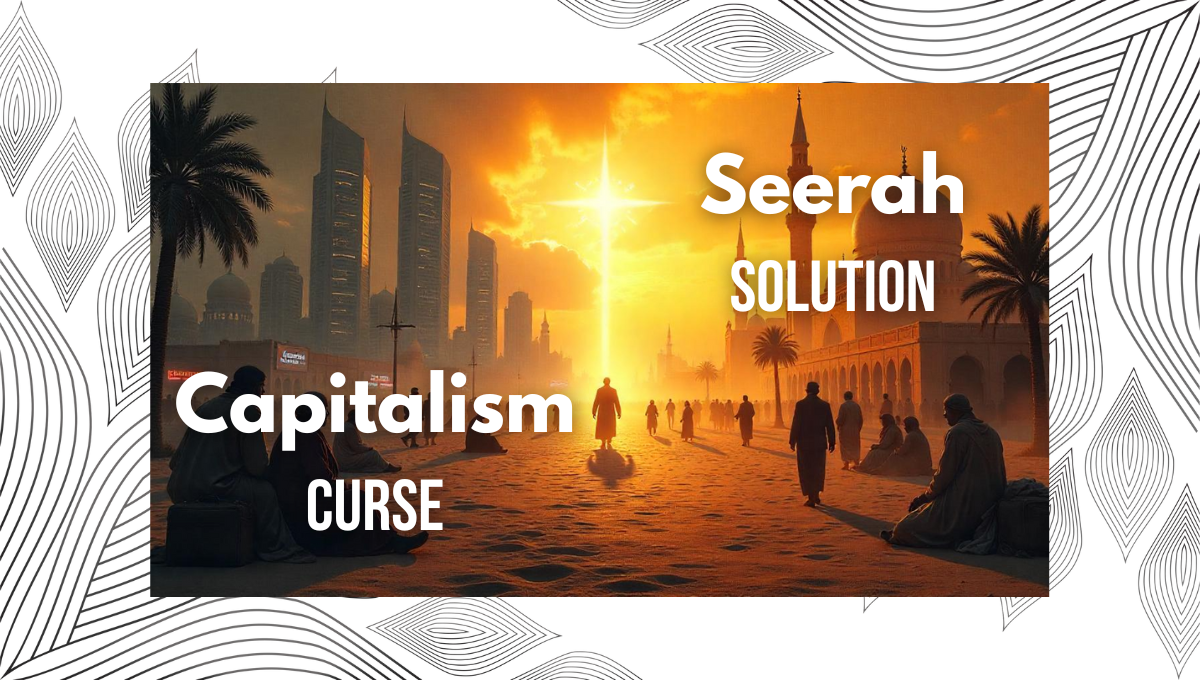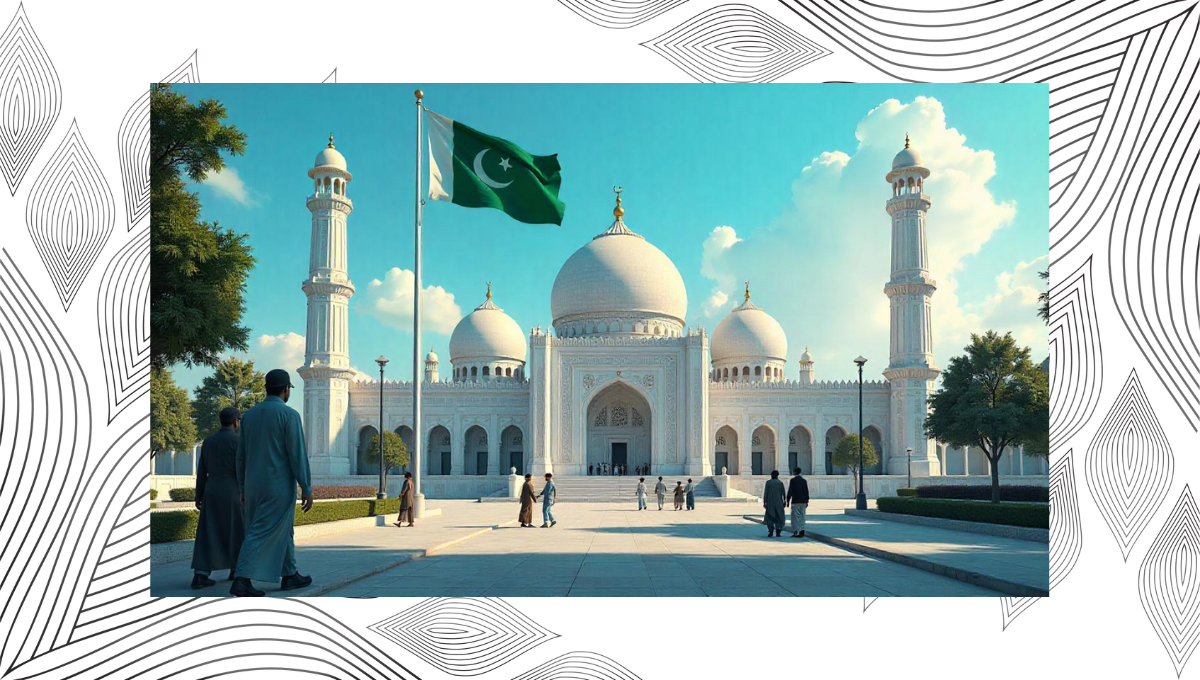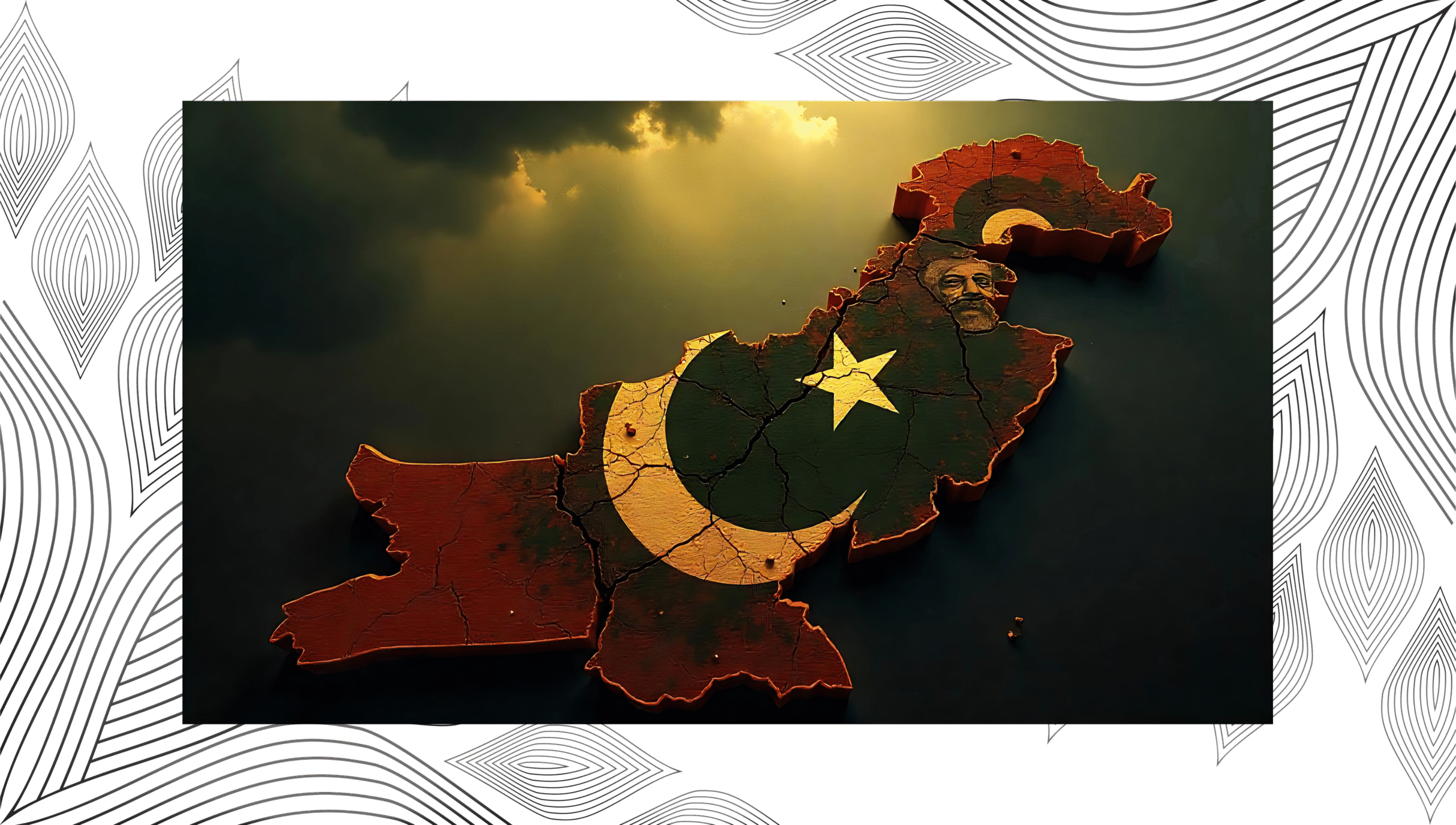In the 21st century, Capitalism has entrenched itself as the dominant global economic system. It’s hailed for driving innovation wealth generation and consumer choice. However, beneath its polished surface lies an engine of systemic inequality exploitation environmental destruction, and moral decay. As we delve into the reality of capitalism’s consequences, we also explore how Islam through the Seerah of Prophet Muhammad (PBUH), presents a timeless, divine alternative grounded in justice, equity and moral guidance.
I. Understanding Capitalism: A System Built on Injustice
Capitalism in essence is an economic system where the means of production are privately owned and operated for profit. While it promises prosperity, in practice, it has led to:
1. Widening Wealth Inequality
According to Oxfam (2024), the world’s richest 1% own nearly half of global wealth, while the bottom 50% share just 2%.
Corporations exploit cheap labor in the Global South while amassing profits in tax havens.
2. Poverty in a World of Surplus
Despite global food surpluses, over 700 million people live in extreme poverty (World Bank, 2023).
Capitalism thrives on scarcity economics, where even basic needs like water, food, and healthcare are commodified.
3. Moral and Social Breakdown
Interest (Riba), consumerism and materialism erode family structures mental health and spirituality.
The culture of “profit at all costs” promotes environmental destruction and social apathy.
II. The Seerah: A Blueprint for Divine Economic Justice
Islam, as a complete way of life, offers not just spiritual salvation but also political and economic solutions. The Seerah of the Prophet Muhammad (PBUH) provides a comprehensive example of how to build a just society.
1. Economic Justice in Madinah
When the Prophet migrated to Madinah, he built an economy rooted in justice, brotherhood, and equity:
Abolition of Riba (Usury):
In his Farewell Sermon, the Prophet declared:
“All interest obligations are abolished. Your capital, however, is yours to keep.” (Sahih Muslim)
This destroyed the exploitative class structure controlled by the rich Meccans like Abu Sufyan.
Public Ownership of Natural Resources:
The Prophet said:
“People are partners in three things: water, pastures, and fire (energy).” (Abu Dawud 3477 )
Unlike capitalism where these are privatized, Islam protects communal rights.
2. Brotherhood Over Classism: The Muhajirun and Ansar
Upon arriving in Madinah, the Prophet paired the migrants (Muhajirun) with the locals (Ansar) in economic brotherhood:
Ansar shared half their wealth, property, and businesses.
This destroyed tribal, ethnic, and class barriers, a direct contradiction to capitalism’s division of society by wealth and privilege.
3. Regulation Without Exploitation
The Prophet established a Hisbah system (market regulation), appointing officials to prevent fraud, hoarding, and monopoly (Ibn Sa’d, Tabaqat).
He entered the market personally and warned traders:
“He who cheats is not one of us.” (Sahih Muslim)
This system prevented price manipulation and speculation rampant in capitalist markets.
III. Real-world Applications in Islamic History
1. The Caliphate of Umar ibn al-Khattab (RA)
Instituted Bayt al-Mal (public treasury) to redistribute wealth to the needy, unemployed, widows, and orphans.
Implemented land reforms, ensuring no land was hoarded or left uncultivated (al-Mawardi, Ahkam al-Sultaniyyah).
No one slept hungry during his reign something capitalist states have never achieved.
2. Zakat as Economic Purification
Unlike capitalist taxes that fund wars and debt interest, Zakat is a divine tool:
2.5% annually from wealth above the nisab.
Distributed locally to the poor, debt-ridden, and needy (Qur’an 9:60).
This curbs hoarding and recycles wealth, a direct solution to the problem of inequality.
Author: Syeda Wardah Shah
wardahsohailxxxxx@gmail.com


